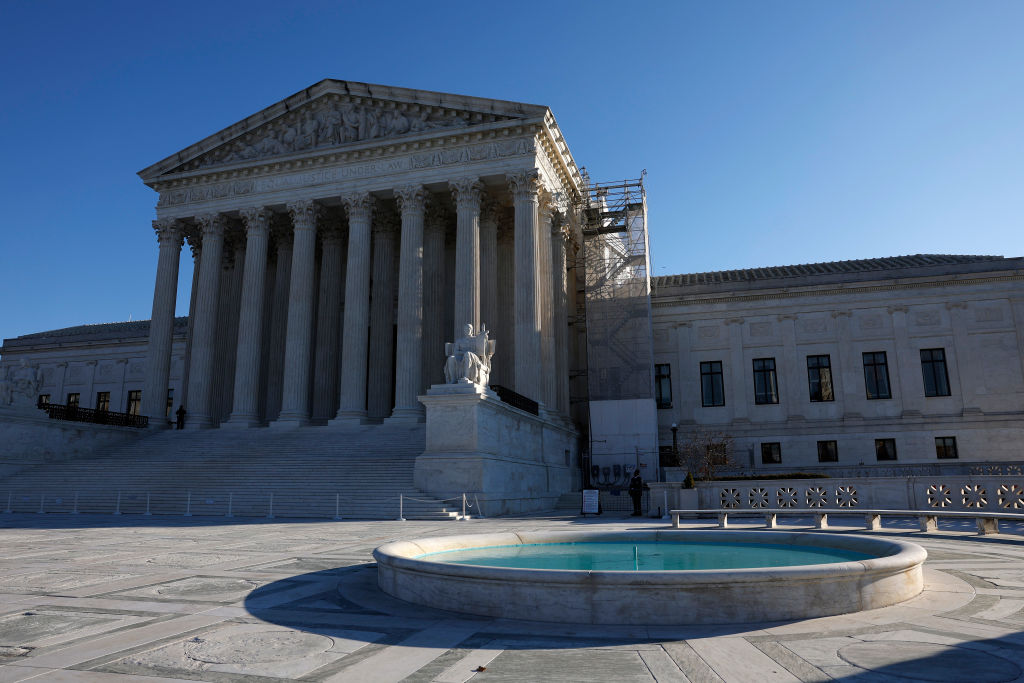Federal official challenges Trump administration’s power to fire her


Lawyers for Shira Perlmutter, who served as the head of the U.S. Copyright Office until she was fired earlier this year, urged the Supreme Court on Monday afternoon to leave in place a ruling by a federal appeals court that temporarily reinstated her to her position. Brian Netter of the nonprofit Democracy Forward told the justices that, “in response to lawless executive action,” the Trump administration’s request to put that ruling on hold was seeking “extraordinary relief that would upend the status quo and defy Congress’s well-expressed intent.”
Perlmutter was appointed in 2020 to serve as the head of the Copyright Office, a position known as the Register of Copyrights, by Carla Hayden, who at the time served as the Librarian of Congress. The Register of Copyrights is housed within the Library of Congress.
On May 8, President Donald Trump fired Hayden. He later appointed Deputy U.S. Attorney General Todd Blanche as the Acting Librarian of Congress.
Perlmutter received an email on May 10 from the White House Presidential Personnel Office notifying her that she had been fired, “effective immediately.” The email came one day after the U.S. Copyright Office released a pre-publication version of a report on artificial intelligence that made recommendations with which Trump allegedly disagreed.
Perlmutter challenged her removal in federal court. A federal judge in Washington, D.C., rejected her request for an order that would temporarily return her to her job while the litigation continued. By a vote of 2-1, however, the U.S. Court of Appeals for the District of Columbia Circuit ordered the Trump administration to temporarily reinstate Perlmutter, and the full D.C. Circuit declined to reconsider that decision.
U.S. Solicitor General D. John Sauer then came to the Supreme Court on Oct. 27, asking the justices to intervene. He contended that although the Register of Copyrights is housed in the Library of Congress, she is in fact part of the executive branch, because the Register exercises executive power – for example, issuing regulations, enforcing copyright laws, and ruling on applications for copyright registration. Therefore, he argued, the president can remove the Librarian of Congress (who is also part of the executive branch), who can then fire the Register of Copyrights. But even if Perlmutter were improperly fired, Sauer added, the D.C. Circuit does not have the power to reinstate her, even temporarily, as the Register of Copyrights; it can only award her back pay.
In a brief filed on Monday afternoon, Perlmutter countered that the Trump administration was focusing on the wrong question. The issue before the justices, she insisted, “is not whether the Register of Copyrights or the Librarian of Congress has any functions that can be characterized as ‘executive’ for constitutional purposes.” Instead, “it is whether Congress decided to organize the Library as an ‘Executive agency.’” The answer to that question, she maintained, is “no”: the D.C. Circuit has already ruled, in a separate case, that it is not, and in other federal laws Congress has “distinguished between an ‘Executive agency’ or an ‘independent establishment,’ on one hand, and the ‘Library of Congress,’ on the other.” Moreover, she added, “Congress has elsewhere regulated the Library as part of the legislative branch.”
Because the Library is not an “Executive agency,” Perlmutter continued, Trump did not have the power to appoint Blanche as the acting Librarian of Congress after he fired Hayden. And if Blanche’s appointment was not valid, she contended, then he did not have the authority to fire Perlmutter.
Trump cannot now argue that he has the power to fire her directly, Perlmutter said, because he did not make this argument in the court of appeals. But it too is a “meritless” argument, Perlmutter told the justices. Congress gave the Librarian of Congress the power to appoint the Register of Copyrights, she reasoned, and “[i]t therefore follows that only the Librarian of Congress has the authority to remove her.”
Accepting the Trump administration’s argument, Perlmutter contended, would confer a “sweeping expansion of presidential authority (and derogation of congressional authority).” If the Trump administration is correct, she suggested, he could get around Congress’ decision to give officials like the Librarian of Congress the power to appoint subordinates simply by “firing the principal officer” – like Hayden – “first to create a vacancy and then using that vacancy as a justification to usurp the appointment power that Congress vested elsewhere.”
Finally, Perlmutter told the justices that the D.C. Circuit’s order was proper because she is not asking to be reinstated to her position, “because she was never removed in the first place. Perlmutter did not come to court seeking reinstatement,” she emphasized, but instead “has asked for an injunction to prohibit individuals who lack the authority to displace her from pretending that they have such powers.” The D.C. Circuit’s order, she wrote, simply “maintained the status quo.”
Posted in Court News, Emergency appeals and applications
Cases: Blanche v. Perlmutter